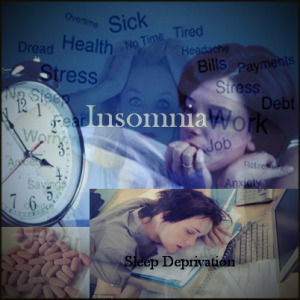Difference between Insomnia and Sleep Deprivation

Difference between Insomnia and Sleep Deprivation
Do you know 50% of people are facing insomnia? Yes! It’s now a severe issue that every adult and aged encounters. In the channel of Medical Sciences, there are two disorders associated with napping issue. One is Insomnia and other one is sleep deprivation. Infrequent variation in the sleep cycle is not a matter of concern unless it becomes ongoing. To know what they refer to, it is a need to know what they pertains to. This post will reveal the difference between Insomnia and Sleep Deprivation.
What is Insomnia
Insomnia is a sleeping disorder in which patient feels difficulty in falling asleep. People of insomnia feels uncomfortable in sleeping even they have a place to take a nap. It is defined as having appropriate time and conditions to have essential sleep every night. Hyper arousal is an important cause of insomnia. Insomniacs exhibit highest level of daytime arousal, keeping them awake both in the day and night. Insomnia can be divided into acute and chronic insomnia or primary and secondary. Acute insomnia lasts for days to weeks and chronic is said to occur when a person experiences difficulty in sleeping for 3 nights a week for 3 months or more. Primary insomnia is not attributed to any medical cause, on the contrary, secondary insomnia is linked to a medical condition like psychiatric and sleep disorders.
What is Sleep Deprivation
It is a condition of not having enough sleep. Sleep deprived people are unable to achieve enough sleep. The word ‘deprivation’ suggests insufficiency of right set of circumstances to fulfill the physiological requirement needed by the mind and body. It’s another name is Behaviorally Induced Insufficient Sleep Syndrome (BIISS) which is because of extended working hours or restricting sleep for other activities like watching TV, etc. This adversely affects the day time sleep, making person fatigue.
Insomnia vs Sleep Deprivation
Symptoms or Signs: National Sleep Foundation (NSF) gives following symptoms of insomnia:
- Tiredness and fatigue
- mood swings
- irritation
- waking up too early in morning
On the other side, sleep deprivation affects physical, emotional and mental level.
- Sleepiness
- Lightheadedness
- Headaches
- Poor memory
- Irritability
Major Causes: Common reasons of insomnia comprise:
- Stress (work, family or health),
- Anxiety, Change in environment or work schedule
- Medications i.e antidepressants, drugs for Parkinson’s
- Alcohol intake,
- Much intake of dinner before bed time.
Whereas, Sleep deprivation is the sleep disturbance that are mainly found in adults. The major reason may be Excessive noise or annoying environment, differences in nightly routines, overbooked schedules skipping sleep for academic purposes.
What do studies say?
According to a study, people suffering from sleep deprivation were examined during multiple naps and it revealed that the same group of people slept quicker than most people with healthy, uninterrupted sleep pattern. This explains that sleep deprivation is due to external factors instead of it being a disorder.
On the other hand, people with insomnia took longer to sleep than good sleepers in a similar study.
Recommendations
In accordance with evidence-based studies Sleep deprived people are encouraged to stay longer in bed and focus on their sleep whereas insomniac are recommended to go to bed when they actually feel like sleeping or should get out of bed when there are no longer signs of sleep.
Switch to treatments: For insomnia, doctors endorse Cognitive Behavioral Therapy in case of long-term sleeping problems.
For Sleep deprivation, natutal remedies work usually like relaxation therapies:
- Breathing
- Imagery technique that requires visualizing peaceful picture in mind that promote sleep
Conclusion
Summing up, insomnia commonly involves depression, tension and swing in sleeping episodes that leads to this disorder when a person desires to sleep but fails to. Sleep deprivation is closely connected to environmental factors like socializing and late night gatherings. Both the conditions require immediate treatment as their long term effects are dangerous. What is your opinion?
References
https://sleepstandards.com/sleep-deprivation/#NonMedical_Treatments
https://www.webmd.com/sleep-disorders/insomnia-symptoms-and-causes


Leave a Reply